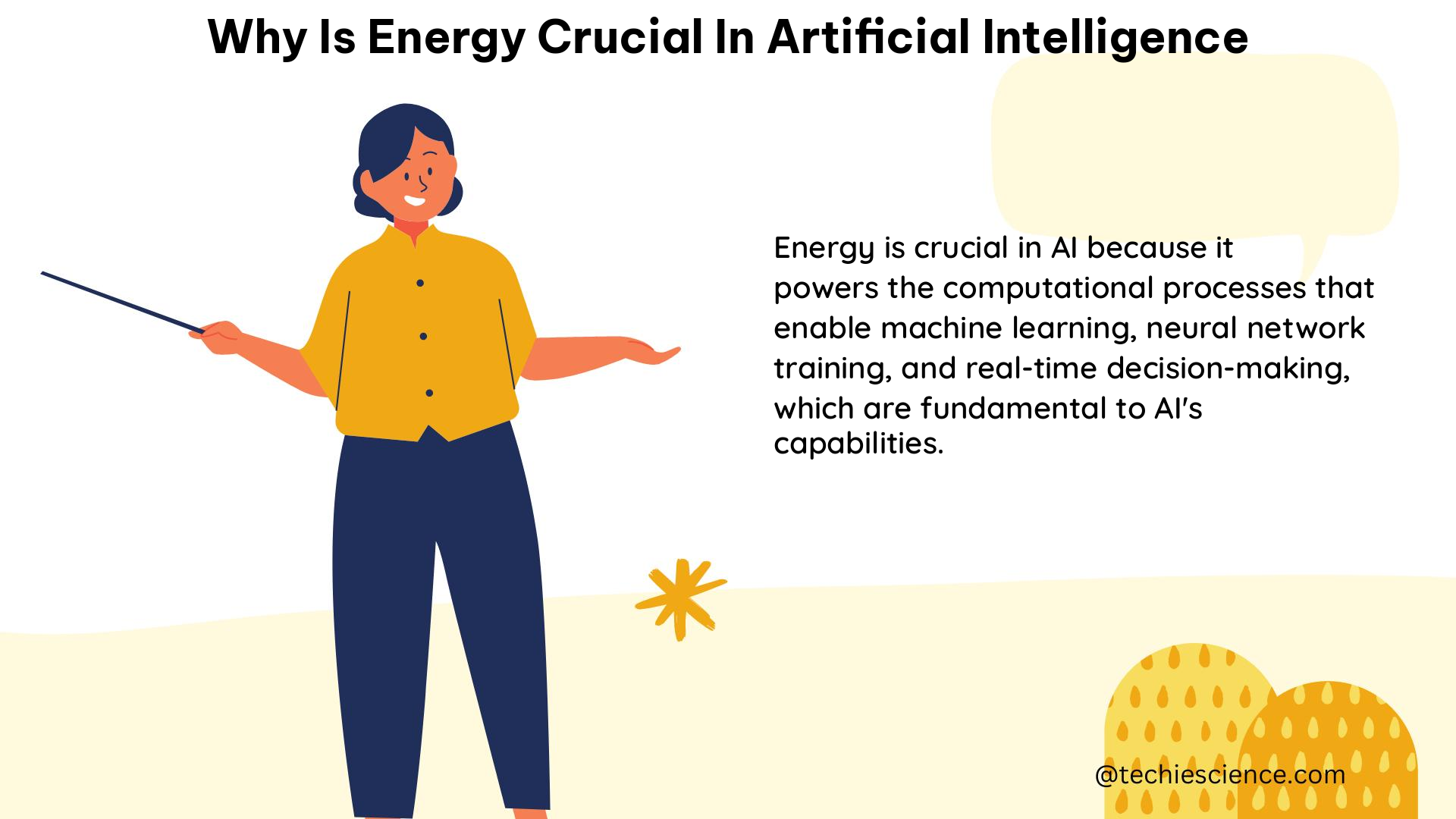Energy is a fundamental aspect of artificial intelligence (AI) systems, as it powers the computations that drive machine learning algorithms, optimizes various processes, and enables the continuous improvement of AI models. Understanding the physics behind energy consumption in AI is crucial for developing efficient and sustainable AI solutions.
The Physics of Energy Consumption in AI
The physics of energy consumption in AI systems is governed by fundamental principles, such as the laws of thermodynamics, which dictate the conversion of energy into useful work. The amount of energy (E) consumed by an AI system can be calculated using the formula P=E/t, where P is power (in watts) and t is time (in seconds).
Theorem: The Jevons Paradox
The Jevons paradox, also known as the rebound effect, states that as a technology becomes more efficient, its usage may increase, leading to a net increase in energy consumption. This phenomenon is particularly relevant in the context of AI, as the continuous advancements in computational power and algorithm efficiency can drive increased adoption and usage of AI, potentially offsetting the gains in energy efficiency.
Physics Formula: Calculating Energy Consumption
The amount of energy (E) consumed by an AI system can be calculated using the formula P=E/t, where P is power (in watts) and t is time (in seconds). This formula allows us to estimate the energy requirements of AI systems based on their computational demands and operating parameters.
Physics Example: Energy Consumption of an AI Model
Consider a simple AI model that requires 10^9 floating-point operations (FLOPs) to perform a single prediction. If this model operates at a clock speed of 1 GHz, it will consume approximately 1 Joule of energy per prediction (assuming 1 FLOP = 1 pJoule).
Physics Numerical Problem: Training an AI Model
Suppose we have an AI model that requires 10^18 FLOPs to train. If the model is trained for 10 hours using a system with a power consumption of 1 kW, we can calculate the total energy consumption in kWh:
- Total number of seconds in 10 hours: 10 hours * 60 minutes/hour * 60 seconds/minute = 36000 seconds
- Energy consumption: 10^18 FLOPs / (10^9 FLOPs/Joule) * 36000 seconds * (1 kW / 1000 Joules/second) = 36000 kJoules or 10 kWh
The Importance of Energy in AI

Energy is crucial in artificial intelligence for several reasons, including:
-
Powering Computations: AI systems rely on complex computations to perform tasks such as machine learning, natural language processing, and computer vision. These computations require significant amounts of energy to execute.
-
Optimizing Processes: Energy efficiency is a critical factor in optimizing the performance and scalability of AI systems. Reducing energy consumption can lead to cost savings, improved sustainability, and increased accessibility of AI technologies.
-
Enabling Continuous Improvement: The continuous development and refinement of AI models require substantial computational resources, which in turn demand significant energy inputs. Ensuring the availability and efficient use of energy is essential for the ongoing advancement of AI capabilities.
Figures and Data Points
- The amount of energy that AI is currently drawing is approximately 10% of what Americans consume in terms of just watching television.
- The use of machine learning algorithms in solar power forecasting has resulted in a 25% reduction in forecasting errors compared to traditional methods.
- AI-powered energy management systems can reduce household energy consumption by up to 10%.
These data points highlight the significant impact of energy consumption in AI and the potential for AI to optimize energy usage in various applications.
Conclusion
Energy is a crucial component of artificial intelligence, as it powers the computations that drive machine learning algorithms, optimizes various processes, and enables the continuous improvement of AI models. Understanding the physics behind energy consumption in AI systems, including the Jevons paradox and the formula for calculating energy usage, is essential for developing efficient and sustainable AI solutions. By considering the energy implications of AI, researchers and developers can work towards creating more energy-efficient AI systems that can positively impact various industries and applications.
References
- Wrapping Our Heads Around AI and Energy
- The Impact of Artificial Intelligence on Energy Consumption
- AI in Energy: Your Data is the Game Changer – 7 Reasons Why
- Measurement & Verification of Energy Efficiency Using AI
- The AI Boom Could Use a Shocking Amount of Electricity

The lambdageeks.com Core SME Team is a group of experienced subject matter experts from diverse scientific and technical fields including Physics, Chemistry, Technology,Electronics & Electrical Engineering, Automotive, Mechanical Engineering. Our team collaborates to create high-quality, well-researched articles on a wide range of science and technology topics for the lambdageeks.com website.
All Our Senior SME are having more than 7 Years of experience in the respective fields . They are either Working Industry Professionals or assocaited With different Universities. Refer Our Authors Page to get to know About our Core SMEs.